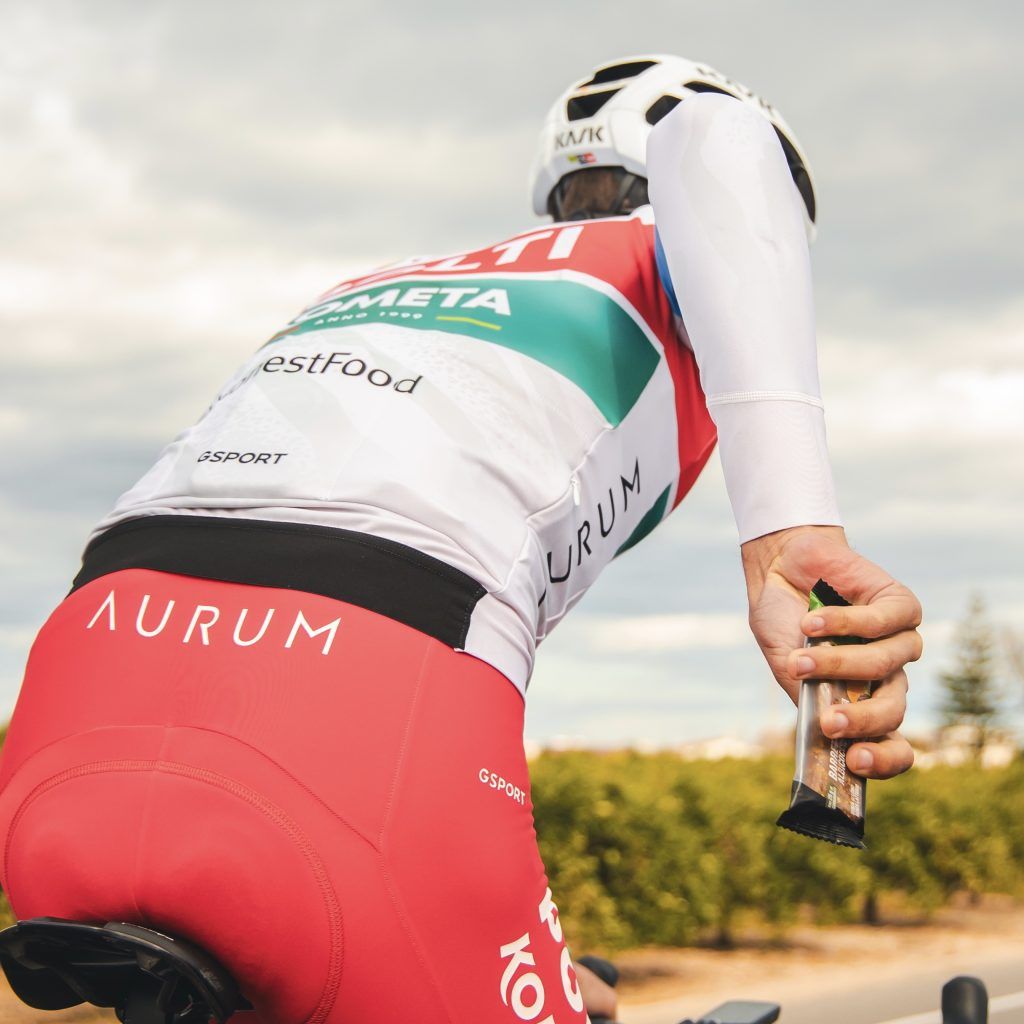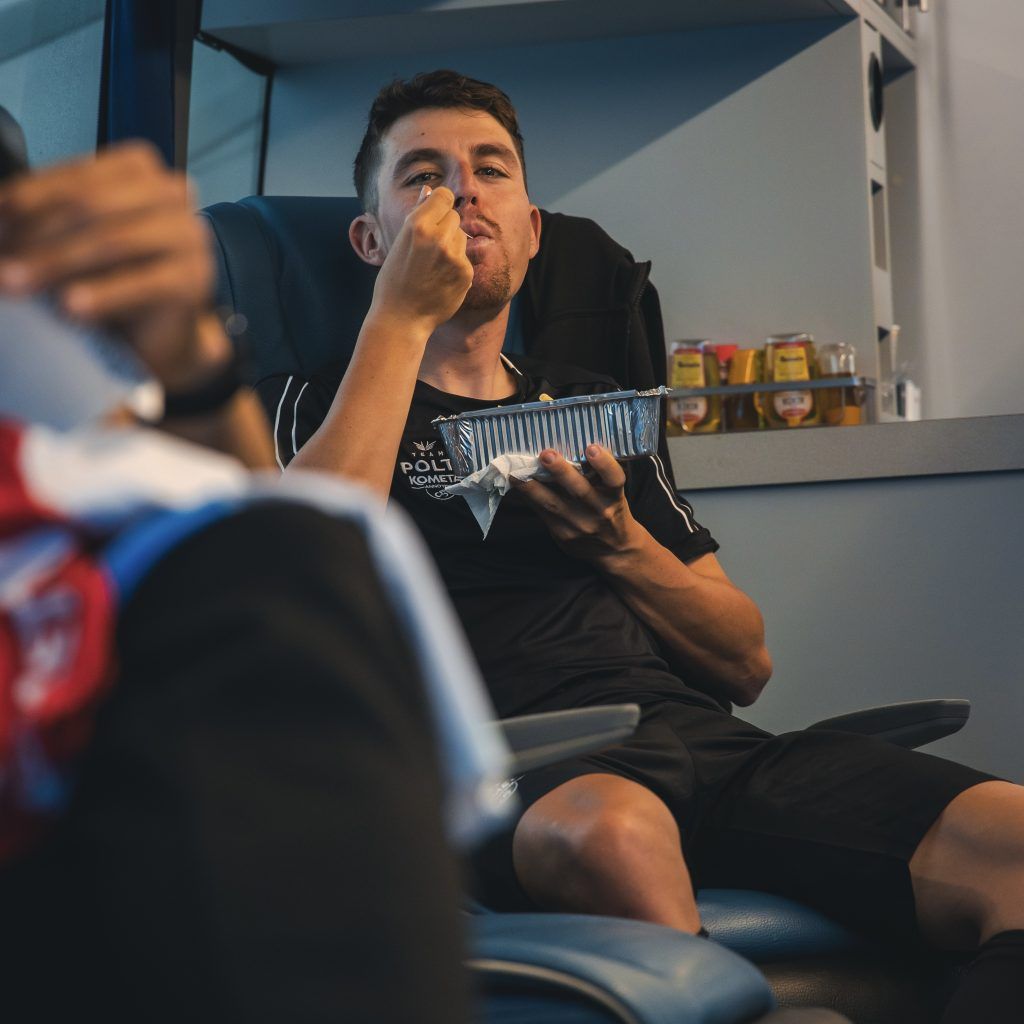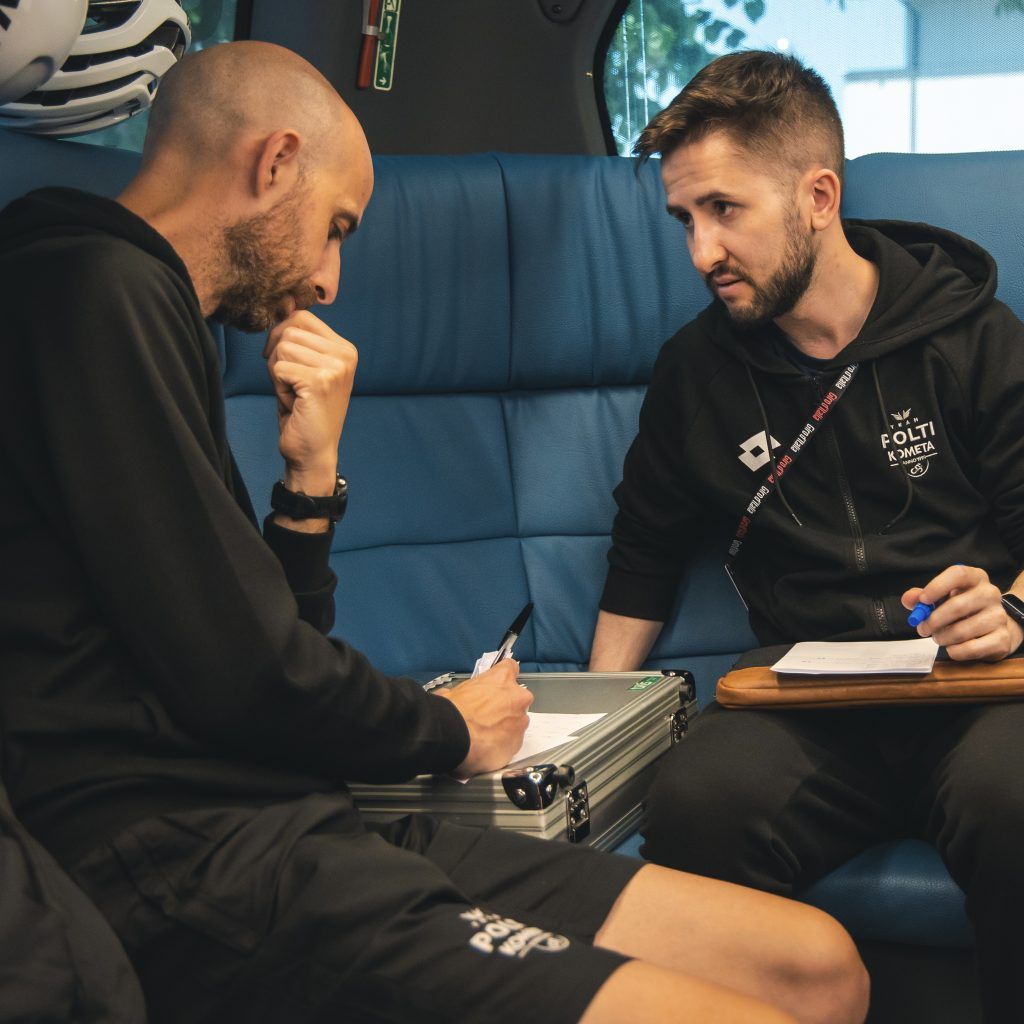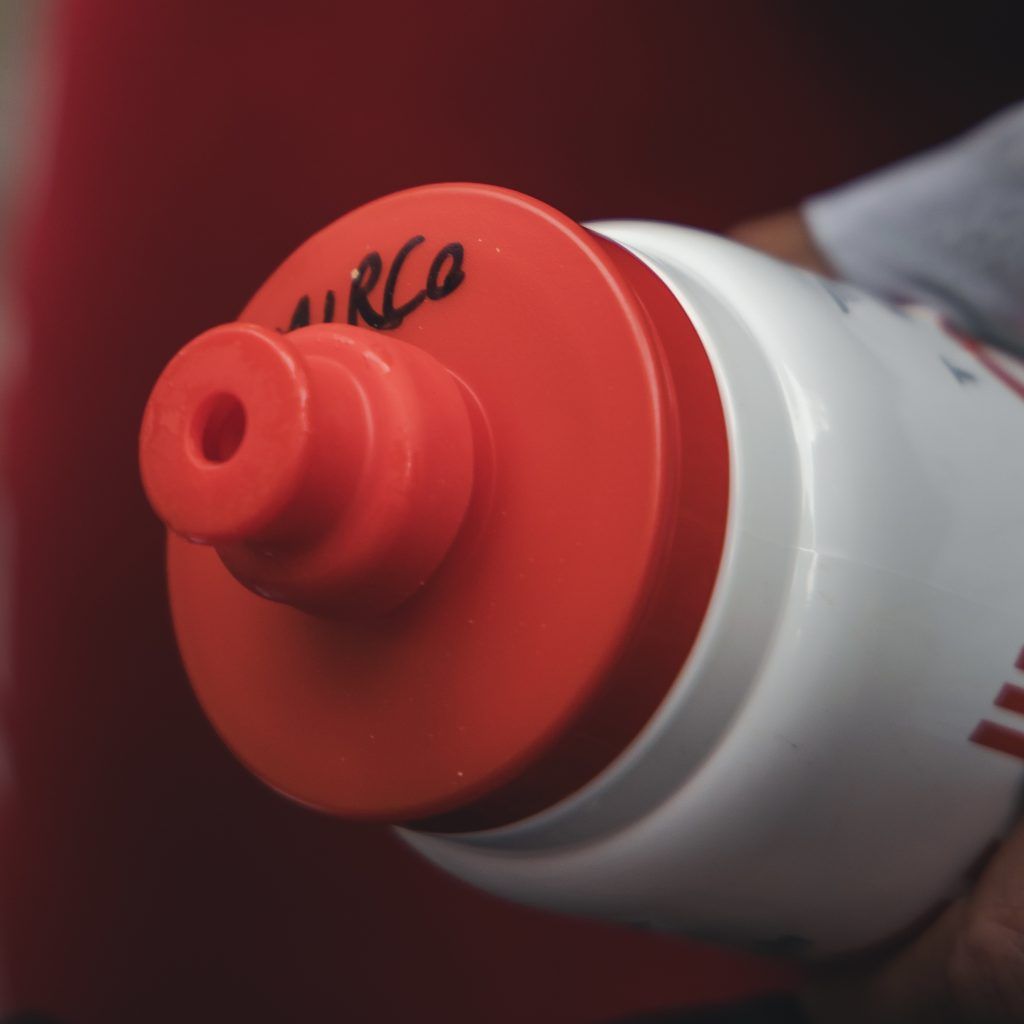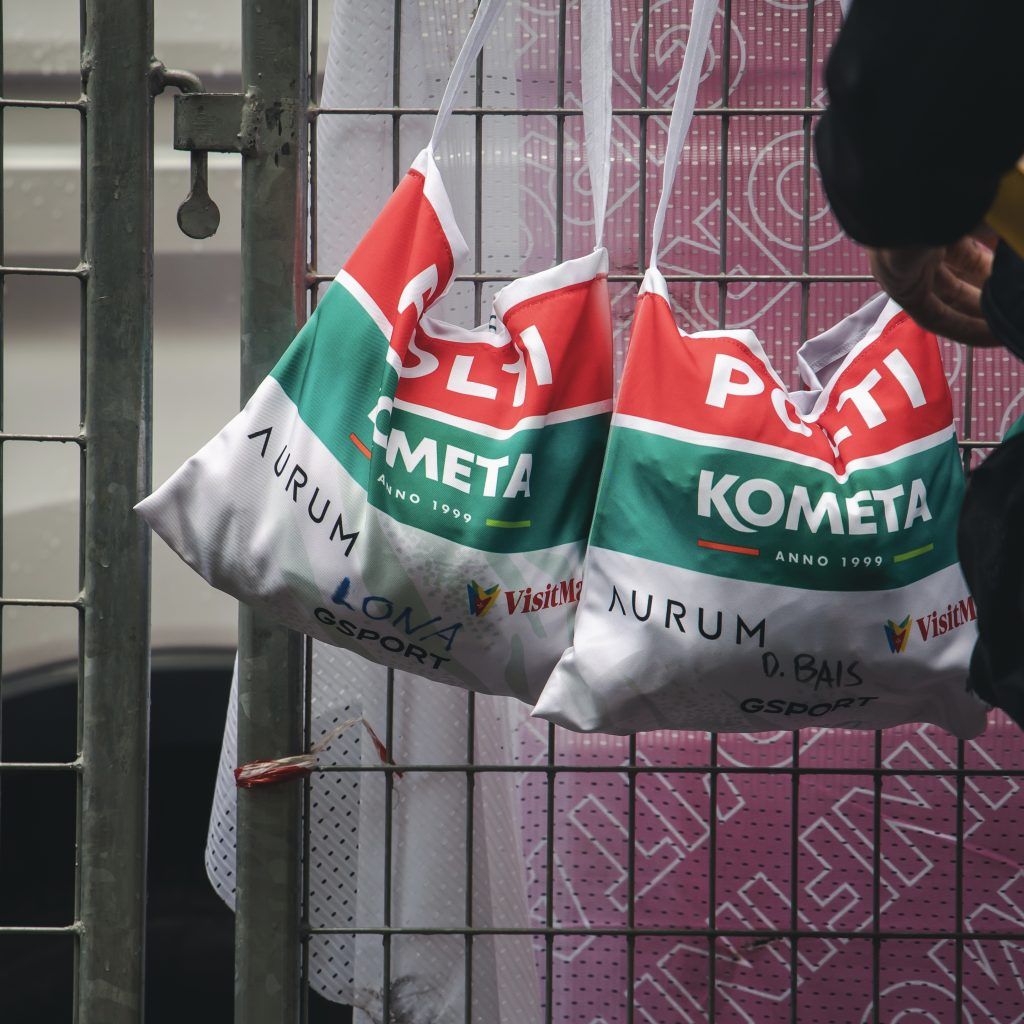Emen4Sport powers nutrition revolution in Team Polti Kometa
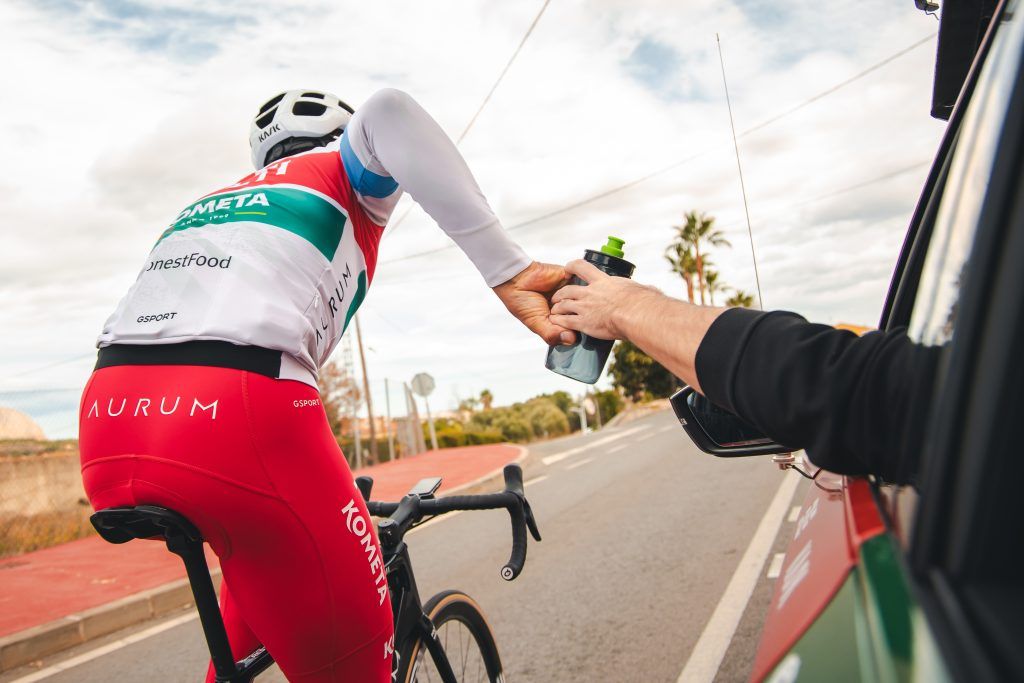
The alliance between Team Polti Kometa and Emen4Sport, a company specialising in sports performance, has allowed the team, thanks to its professionals, to exponentially improve nutrition, both in and out of competition.
In recent years, one of the key points in cyclists’ performance has proved to be nutrition. The control, measurement and above all the correct intake of food and supplements that guarantee both optimum performance and the fastest recovery, especially in the longest and toughest races on the calendar such as the Giro d’Italia.
Emen4Sport works with its professionals in the day-to-day running of Team Polti Kometa, helping in the performance department to ensure that nutrition enables cyclists to achieve their goals. And for this, all the improvements and discoveries that are also applied by the best teams on the international scene are being implemented.
‘This year we are really noticing the support and professionalism of Emen4sport,’ explains cyclist Davide Piganzoli. The young Italian is one of the riders who has shone the most this season, and he also attributes this to the excellence in terms of nutrition: ‘They deserve part of the credit for the good results this year, because thanks to their approach, which covers the most innovative trends such as typology, timing and the total amount of carbohydrates to be consumed both in and out of competition, I have noticed a real improvement in both performance and recovery,’ adds Piganzoli.

Iker Bóveda is one of the Emen4Sport professionals who is most in touch with Team Polti Kometa. He refers to the ‘nutrition revolution’ because of riders’ confidence in the need to monitor health and performance closely. ‘The last decade has seen a paradigm shift from the current thinking that advocated significantly low carbohydrate intakes for maximum competition performance’.
‘This has completely changed, now the understanding of physiology and its synergistic application with precision nutrition is the ABC’s in cycling and is now one of the pillars that represents the biggest marginal differences between teams’.
In addition, there is the determination to adapt nutrition to the weekly objectives, to the moments of the season of each cyclist. In pre-season, the nutritionists carry out a study of each cyclist, get to know their day-to-day life, analyse their body composition through anthropometry, and monitor their values in order to seek improvement during the training camps. ‘It is the ideal time of the season to understand and work on their metabolism: we try to understand how their bodies respond to different calorie stimuli, if there are fluctuations in weight, and of course we also take advantage of the opportunity to carry out tests with intra-seasonal intake when they train. Conveying clear messages and explaining the processes to them is fundamental,’ adds Bóveda.
The importance of the cyclist’s trust in the working method, and showing that these changes and improvements have results, is the key to making the nutrition revolution work. There is almost daily contact, like the coaches, to make adaptations, tests and monitor body values to confirm progress. When it comes to competition, the acid test arrives. There, nutritionists have to work on with the strategies and missions in the race, the temperature conditions, humidity, possible crashes, bad days… ‘and we must also try to consider all of this in order to establish the correct nutrition for the cyclist. Caloric expenditure can be higher or lower than expected and it is necessary to modify it’.

‘We prepare the stage by considering aspects common to all of them, such as the stage profile and the expected weather, as well as the rider’s role and the physiological stimuli that are expected. At the end, nutritional adjustments are required depending on how the stage has finally gone, and the cyclist also begins to prepare nutritionally so that he or she is recovered and ready to do the work for the team on the following day’. Nutritionist Iker Bóveda is aware of the importance of this work: ‘We can control intakes and weight fluctuations during races, which is necessary to guarantee optimum performance in competition and to seek the best possible recovery’.
But in the end, although there is help from all the professionals in the performance department and specifically in nutrition, the most important thing is for the cyclist to know himself. ‘That is why we have carried out a learning process, so that they can tell us how they feel, how they have experienced (positively or negatively) the planning planned for them, and in this way try to continue to improve’. In addition, we try to avoid the mental fatigue of eating similar foods. ‘We give them the option, as long as the composition is similar, to be able to cook whatever they feel like, especially when they are out of competition. It is essential that there is variety in the form of preparation, changing textures and flavours so as not to fall into a routine and so that they can comply with the nutritional planning’.

Team Polti Kometa is aware of the importance of nutrition, which is still growing, and that is why it continues to rely on Emen4Sport professionals so that cyclists can face challenges with excellence also in this area of performance. A partnership for the future, which is already present and which the cyclists themselves are turning into a great season of results.

